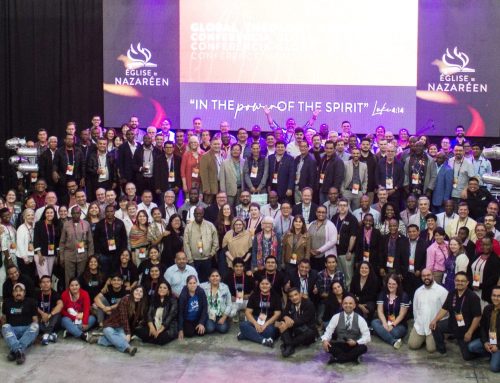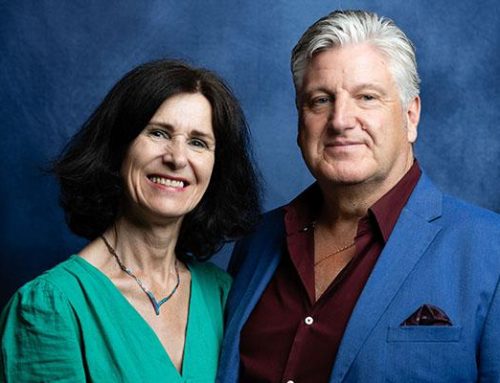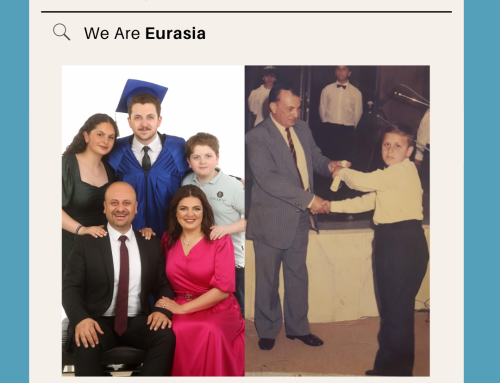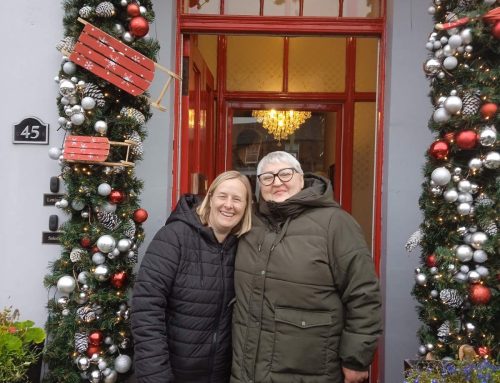 I stood before my home church as the missionary speaker, sharing stories that had been entrusted to me during my first year as a missionary journalist in Eurasia. One of the stories was the faith journey of Irina Albei (Bucharest, Albania) and how God saved her unborn baby during a series of astonishing miracles. (Read the story here: http://tiny.cc/4rb4uy)
I stood before my home church as the missionary speaker, sharing stories that had been entrusted to me during my first year as a missionary journalist in Eurasia. One of the stories was the faith journey of Irina Albei (Bucharest, Albania) and how God saved her unborn baby during a series of astonishing miracles. (Read the story here: http://tiny.cc/4rb4uy)
After the service, a young man approached me. He said that in his past, he had walked away from his faith in God because he could no longer believe God still performs miracles. He was only in the congregation on that Sunday morning because a friend had insisted he come. Then, this young man heard me tell the story of Irina’s longing to experience a miracle, and how God answered her prayers by miraculously saving her child’s life multiple times.
“I didn’t believe there really were miracles until I heard this story today. I have rededicated my life to Jesus,” the young man told me.
I was stunned. This man had never met Irina in person. In fact, I had not met her, either – we’d only talked on the telephone. Neither this young man nor I had seen her child except in photographs, which I’d used in my PowerPoint. And yet, Irina’s faith story — even third-hand — created space for the Holy Spirit to use it to reach this young man, who responded to God in renewed belief.
This encounter, and many others like it, has convinced me that a primary way God chooses to work in our lives is through the sharing of our stories – our testimonies. When we “witness” to what God has done for us and give Him the praise and credit, the Holy Spirit honors our witness, bringing conviction, repentance, transformation, new understanding, encouragement, strength, comfort — and belief.
God is a storytelling God. We know this because He has given us the Bible, which, from Genesis to Revelation, is full of stories that teach us who God is, and who we are. At the same time, taken as a whole, the Bible is THE story of God, and God’s love for humankind.
If God communicates to us so often through stories, and we are created in His image, it stands to reason that humans may communicate most effectively with each other through stories.
A mentor in the field of media ministry once told me that effective communication has many things in common with the way we do mission work.
For example, when a missionary crosses cultural and language boundaries to share the gospel, she must travel to where the people are whom she is called to share the gospel with. Once there, she first takes time to understand the people she wants to minister to. That means the missionary starts learning the language spoken by the local people. She listens a lot, getting to know the way people think and view the world, how they understand God and religion, family and gender roles, their own history, as well as world history and their place in it.
Before a missionary tries to communicate, he or she tries to understand. Deeper understanding provides the foundation for more effective communication.
Effectively communicating, after gaining some level of understanding, may be as simple as sharing your own story, or daily faith journey stories, in ways and with words that people understand, and in places where they prefer to meet and spend time.
Stories can be as simple as an answered prayer, or how God helped you handle a difficult situation at work or with a family member. Your story may not yet have an ending. You may be in the midst of your story, but you can still point to where God has been faithful and stood beside you, even entered into your suffering with you. A story might be about how you are waiting with trust for God to reveal himself or answer a prayer. And when someone shares a story with you, perhaps ask where they might see God in their story.
As we tell our faith stories, we are proclaiming God’s story!
Written by Gina Pottenger and previously published in the July 2018 edition of Where Worlds Meet edition.



